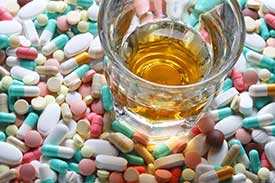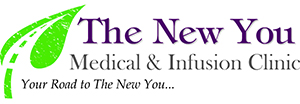Substance Abuse Treatment in Arlington, TX
Commonly Abused Substances:

Addiction is a major problem in the U.S, the National Survey on Drug Use and Health (NSDUH) estimated that in 2007 there were over 23 million people in need of addiction or rehabilitation (rehab) treatment for substance abuse.
Addictions may not all be from illegal substances, but still cause harm nonetheless. When the consumption of a substance or a compulsive action impairs your daily life, it's time to seek professional help. Impairment is not only health related. The loss of friends, damaged relationships, reckless sexual or spending behaviors, problems with work or school and behavioral changes like aggression or anxiety can all be counted as contributing to impairing your day to day life.
If you or someone you know is suffering from an addicition, it is important to seek professional help. To schedule a consultation with an addiction specialist in Arlington that specializes in substance abuse treatment, call (817) 203-2760 or contact The New You Medical & Infusion Clinic online.
Alcohol:
While legal, alcohol can still become an addictive substance. Itself a depressant, alcohol dependence is quite common. An alcohol problem can be characterized by anxiety , relationship and daily activity impairment, blackouts and memory problems.
If you are unable to stop drinking or reduce your alcohol consumption, make excuses for your drinking, drink alone, and consume more than 7 (woman) or 14 (men) drinks per week, you fit the guidelines for alcohol dependence.
Marijuana (natural and synthetic):
Typically smoked, marijuana can present with altered sensory perception, high blood pressure , red eyes, reduced motor coordination, paranoia, anxiety , tachycardia (increases heart rate). Chronic use can cause a decrease in mental acuity.
Opiates:
This group is comprised of painkillers, codeine, oxycodone, morphine and heroin. It's estimated that millions of Americans abuse these substances with the vast majority of them going without treatment for their addiction.
Characterized by a decrease in physical pain and a euphoric feeling, confusion, speech problems, confusion and trouble concentrating are among the side effects. Overcoming an opiate addiction is quite difficult as the withdrawal side effects can be severe.
Withdrawal symptoms include:
- Tachycardia (rapid heart rate)
- Nausea
- Vomiting
- Insomnia
- Hypertension (High blood pressure )
Inhalants:
Due to the easy access of aerosolized products, inhalants have become a popular substance for those looking to gain a high. However, inhaling these substances have severe consequences including speech problems, lasting brain damage, tremors, tachycardia, vomiting, and in some cases, lasting facial damage can result. Freon, a refrigerant found in air conditioners is often huffed. This chemical can cause major frostbite to the lips, nose, cheeks and eyes. In severe cases of frostbite, these parts may require amputation.
Cathinones:
Cathinones are traditionally found in bath salts and plant food. Chemicals like MDPV and Mephedrone act similar to amphetamines and can lead to severe psychotic effects.
Cathinones are typically inhaled but are sometimes smoked. Symptoms of cathiones can include a feeling of euphoria, high blood pressure , tachycardia, chest pain, paranoia, anxiety , panic attacks, hyperthermia, myocardial infarction, hallucinations and delirium, with many users presenting clinically with psychosis, and sometimes violent behavior.
Barbiturates:
Benzodiazepines and barbiturates are a class of drugs known as sedatives. With drug names including lorazepam and diazepam these drugs are routinely used to treat anxiety conditions. However, these substances are routinely abused by many looking for a mental escape.
Causing drowsiness, slurred speech, memory loss, lack of inhibition, depression , low blood pressure, nystagmus (uncontrolled eye movements) and a decrease in motor coordination, barbiturates are the opposite of many drugs. However the danger is still the same.
Stimulants:
Sitting on the other side of the spectrum from the central nervous system (CNS) depressants like lorazepam are the stimulants, including meth and cocaine. These drugs act to make users feel invincible at a very high cost. Ritalin, a common ADHD drug sits within this group. Ritalin is sometimes abused by those looking to increase their work or school performance and those looking to rapidly lose weight.
The common effects of stimulants can include aggression, rapid speech, hallucinations, insomnia , paranoia and depression . Impaired judgement and erratic blood pressure and heart rate can also occur.
Party Drugs:
Not a distinct class in its own right, party drugs are those that are commonly found and sold in nightclubs, raves, concerts and parties. These include MDMA ('E,” “Molly”), GHB and ketamin (Special-K), the latter two being tranquilizers.
The use of these drugs can be to induce personal eutrophic sensations or used to unfortunately commit acts of sexual assault and rape; GHB being more commonly known as the 'date rape drug.”
These drugs can present with a variety of serious symptom including hallucinations, paranoia, hyperthermia, mood changes, tremors, seizure, memory loss and ultimately loss of consciousness.
Hallucinogens:
Often the source of jokes in television and films, hallucinogens are anything but a laughing matter. With hallucinations, users experience altered perceptions of reality (sometimes permanently), impulsive /aggressive behavior, tachycardia, arrhythmia, high blood pressure , seizures and comas.
If you—or someone you know—are addicted, drug and alcohol addiction treatment programs may be the best bet for breaking this destructive habit. For more information, call (817) 203-2760 or contact The New You Medical & Infusion Clinic online
The New You Medical & Infusion Clinic
Address
100 Grapevine HwyHurst, TX 76054
(817) 203-2760
https://www.newyoumedclinic.com/
Hours
Mon:
10:00 am - 6:00 pm
Tue:
10:00 am - 6:00 pm
Wed:
10:00 am - 6:00 pm
Thu:
10:00 am - 6:00 pm
Fri:
Closed
Sat:
Closed
Sun:
Closed

